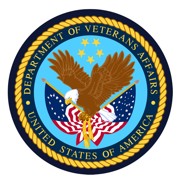
David Sergent knows the importance of home. He plays an important role in helping to keep Veterans living in their own houses and communities as they age.
As a volunteer for the Senior Companion Program of Action for Eastern Montana, Sergent works with Veterans in Montana – many of whom have Alzheimer’s disease or dementia. He helps with activities of daily living such as light cleaning, cooking, shopping, and offering these Veterans’ caregivers and families a chance to rest.
“What I try to do is keep them from going to a nursing home,” he said. “It makes it so much easier if they get to stay in their own house.”
Feels a strong connection to Veterans
That mission is exactly what VA had in mind when it partnered with the Corporation for National and Community Service (CNCS), the federal agency that leads national volunteering and service efforts. Through this partnership, volunteers like Sergent support VA’s Choose Home initiative which allows Veterans who are at risk of moving into a nursing home or other institution to stay at home.
Volunteers like Sergent support VA’s Choose Home initiative which allows Veterans who are at risk of moving into a nursing home or other institution to stay at home.
CNCS provides support to VA’s Choose Home Pilot site and Action for Eastern Montana in Glendive, Montana. Sergent is not a Veteran, but several members of his family are and he feels a strong connection to Veterans in his volunteerism. His father had Alzheimer’s disease. Sergent was able to care for him in his final years.
“All the clients I work with, they’re not a client to me,” he said. “They’re my friends and they’re family.”
“If you love what you’re doing, you’re not working”

Many of his clients are Veterans in their 80s. They have challenges with memory, but they like to talk to Sergent (65) about what they recall from their time in service.
“Whatever they want to talk about, I don’t care what it is, we sit there and talk,” he said. “We don’t just sit there and watch TV. Sitting in a house watching TV is not socializing.”
Sergent connects with his clients during today’s challenges. He talks with them over the phone or meets with them while wearing a mask. He spent extra time at a client’s home when his family member needed more assistance.
“If you go to work and love what you’re doing, you’re not working,” he added.
Impressed with commitment of volunteers
The VA-CNCS partnership is an interagency collaboration. The VHA Office of Community Engagement (OCE) helps coordinate the partnership.
Heather Luper is a social work program manager for OCE. “This partnership meets the needs of Veterans, their caregivers, and community volunteers alike,” she said. “I am especially impressed with the creativity and commitment of the volunteers – some of whom are Veterans themselves – during these difficult times.”
OCE is VHA’s resource for establishing and growing nongovernmental partnerships that benefit Veterans, their families, caregivers, and survivors. Here’s more information on OCE’s partnership work.
Dr. Tracy L. Weistreich is a nurse executive for the VHA Office of Community Engagement.


